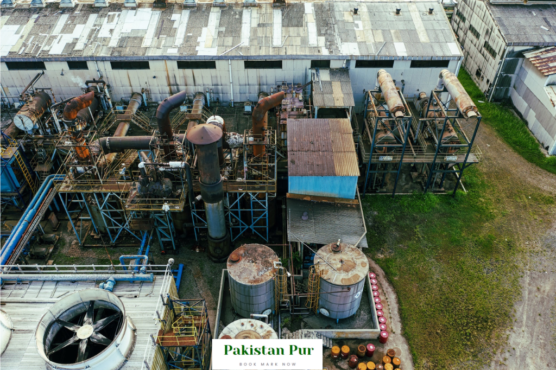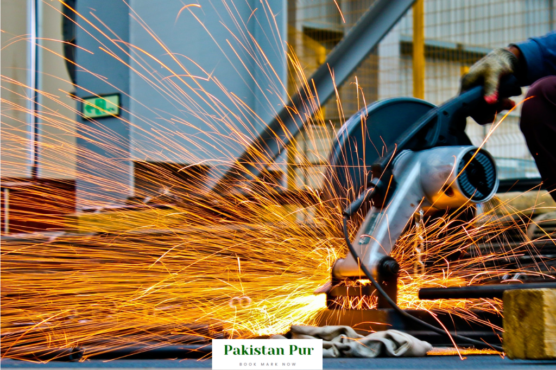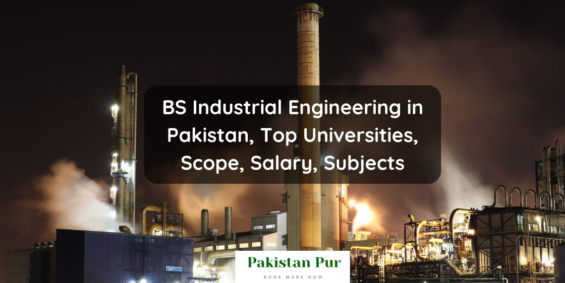Table of Contents
Industrial Engineering is a field of study that focuses on optimizing complex systems, processes, and organizations by developing, improving, and implementing integrated systems of people, money, knowledge, information, equipment, energy, and materials
Industrial Engineering in Pakistan is a rapidly growing field, with several universities offering both regular and online BSc programs.
BS Industrial Engineering in Pakistan discipline focuses on the planning, design, development, and improvement of integrated systems involving people, methods, and machinery.
Universities like the Mehran University of Engineering & Technology and the University of Engineering and Technology, Taxila are renowned for their Industrial Engineering programs.
The curriculum encourages creativity and policy focus, equipping students for leadership roles in the industry. Industrial Engineering graduates have a wide range of career opportunities in various sectors, including manufacturing and systems engineering.
This Guide to BS Industrial Engineering in Pakistan is part of the series on the best career fields after FSc Pre Engineering. Read the full list of careers here.
Best Fields after FSc Pre Engineering in Pakistan
BS Industrial Engineering Universities in Pakistan
These universities are offering BS Industrial Engineering in Pakistan. Use the search function to find a university.
| Institution | City | Program | Public/Private |
|---|---|---|---|
| Mehran University Of Engineering & Technology | Jamshoro | BE , 4 Years | Public |
| Dawood University Of Engineering And Technology | Karachi | BE , 4 Years | Public |
| University Of Engineering & Technology, Peshawar | Peshawar | B.Sc., 4 Years | Public |
| University Of Sialkot | Sialkot | AD , 2 Years | Private |
| University Of Engineering & Technology, Taxila | Taxila | B.Sc., 4 Years | Public |
| University Of Management And Technology | Lahore | BS , 4 Years | Public |
| University Of Engineering & Technology Peshawar ( Jalozai Campus ) | Nowshera | B.Sc., 4 Years | Public |
| Infinity Institute Of Technology | Lahore | BS , 4 Years | Private |

Read this guide to know about the scope of BS industrial and manufacturing engineering in Pakistan.
Industrial And Manufacturing Engineering Scope In Pakistan
BS Industrial Engineering Syllabus and Subjects
The following is a list of the major subjects in industrial engineering program in Pakistan.
- Basic Electrical and Electronics Engineering
- Industrial and Manufacturing Engineering
- Operations Research
- Production Management
- Quality Control and Assurance
- Engineering Economics
- Systems Engineering
- Supply Chain Management
- Project Management
- Statistics for Engineers
- Work Study and Ergonomics
- Machine Design and Workshop Practice
- Thermodynamics and Heat Transfer
- Fluid Mechanics
- Mechanical Engineering Project
- Pakistan Studies
- Islamic Studies
- Communication English
Please note that the specific curriculum may vary by university, and some courses may have prerequisites. Always check with the individual institution for the most accurate and up-to-date information.
BS Industrial Engineering Syllabus by HEC
Higher Education Commission of Pakistan developed syllabus for BS Industrial Engineering with input from Pakistan Engineering Council.
Here is a semester-wise list of subjects for BS Industrial Engineering. You can read the full BS Industrial Engineering Syllabus by HEC here.
BS Industrial Engineering: Semester 1 Subjects
- English I (Functional English)
- Basic Industrial Electronics
- Pakistan Studies
- Engineering Drawing and Graphics
- Introduction to Computing
- Engineering Mechanics
- Calculus
BS Industrial Engineering: Semester 2 Subjects
- English II (Communication Skills)
- Differential Equations
- Workshop Practice
- Machine Design & CAD
- Islamic Studies /Ethics
- Applied Linear Algebra
BS Industrial Engineering: Semester 3 Subjects
- Intro to Engineering Management
- Probability & Statistics
- Manufacturing Processes
- Intro to Thermofluids
- Materials Engineering
BS Industrial Engineering: Semester 4 Subjects
- Engineering Economics *
- Mechanics of Materials
- Metrology & Statistical Quality Control
- Production Systems Design
- English III (Technical Report Writing & Presentation)
BS Industrial Engineering: Semester 5 Subjects
- Operations of Manufacturing Systems
- Numerical Analysis and Computer Applications
- Logic & Critical Thinking
- Operations Research
- Work Study & Methods Engg
BS Industrial Engineering: Semester 6 Subjects
- Computer Simulations
- Human Factors Engg
- Project Management
- Production Planning & Control
- Computer Aided Manufacturing
BS Industrial Engineering: Semester 7 Subjects
- Design of Experiments
- Industrial Facilities Design
- Instrumentation & Control
- Elective I
- Project Phase I
BS Industrial Engineering: Semester 8 Subjects
- Environment, Maintenance and Safety
- Elective II
- Elective III
- Elective IV
- Project Phase II

BS Industrial Engineering Fee Structure
Industrial Engineering of Mehran University Jamshoro Sindh Fees
- Admission Fee: Rs. 20,000 per year
- Total 1st Semester Fee: Rs. 69,050
- Subsequent Semester Fee: Rs. 395,650 approx.
Industrial Engineering Vs Manufacturing Engineering
| Criteria | Industrial Engineering | Manufacturing Engineering |
| Focus | Enhances efficiency and eliminates waste in production process. | Designs, implements, and improves manufacturing systems and processes. |
| Skills | Systems thinking, process optimization, project management. | Product design, manufacturing processes, equipment selection. |
| Goal | To streamline operations, reduce costs and increase productivity. | To create better, safer, faster ways to manufacture products. |
Choose Industrial Engineering if you’re interested in optimizing processes, or Manufacturing Engineering if you’re passionate about improving how products are made.
Systems Engineer Vs Industrial Engineer
| Criteria | Systems Engineering | Industrial Engineering |
| Field Definition | A methodical, disciplined approach for the design, realization, and technical management of complex systems. | An engineering domain dedicated to optimizing complex processes, systems, or organizations by reducing wastage and improving efficiency. |
| Core Skills | Systems thinking, problem-solving, project management, and interdisciplinary understanding. | Process optimization, project management, statistical analysis, and efficiency improvement. |
| Main Objectives | To ensure all aspects of a system interconnect seamlessly to meet the specified requirements. | To eliminate wastefulness in production processes, thereby enhancing efficiency and productivity. |
| Career Outlook | Typically involved in the creation of complex systems like spacecraft, aircraft, and information technology systems. | Often work in manufacturing, logistics, healthcare, and other sectors where process improvement is essential. |
While both fields involve optimizing systems, Systems Engineering is about integrating various components into a unified whole, and Industrial Engineering is about streamlining processes within these systems. Your choice depends on whether you’re more interested in system integration or process optimization.
Industrial Engineering Vs Chemical Engineering
| Criteria | Industrial Engineering | Chemical Engineering |
| Field Definition | A branch of engineering that involves the optimization of complex processes, systems, or organizations. | A discipline that combines natural and experimental sciences (such as chemistry and physics) with life sciences (such as biology, microbiology and biochemistry) plus mathematics and economics. |
| Core Skills | Problem-solving, efficiency improvement, process optimization, and project management. | Strong grasp of chemical processes, problem-solving, project management, and design of chemical processes. |
| Main Objectives | To boost productivity by managing people, methods of business organization, and technology. | To develop and design chemical manufacturing processes, focusing on safety, sustainability, cost-effectiveness and innovation. |
| Career Outlook | Generally employed in sectors such as manufacturing, logistics, healthcare, etc., where efficiency is key. | Typically work in industries like petrochemicals, food processing, pharmaceuticals, and more, focusing on turning raw materials into useful, safe products. |
Whether you lean toward Industrial Engineering or Chemical Engineering depends on your interests: improving existing systems or creating new chemical processes. Both offer exciting opportunities to make meaningful impacts in various industries.
Industrial Engineering Vs Computer Science
| Criteria | Industrial Engineering | Computer Science |
| Field Definition | A branch focused on optimizing complex processes, systems, or organizations. | A discipline that encompasses the study of computers and computational systems. |
| Core Skills | Process optimization, project management, statistical analysis, and efficiency improvement. | Programming, algorithm design, data structures, problem-solving, and logical thinking. |
| Main Objectives | Enhance productivity by managing people, methods of business organization, and technology. | Design and develop software and hardware systems, solve computing problems and innovate in the digital world. |
| Career Outlook | Often employed in sectors like manufacturing, logistics, and healthcare, where efficiency is paramount. | Wide range of opportunities in areas such as software development, data science, AI, cybersecurity, and more. |
Choose Industrial Engineering if you’re inclined towards improving operational efficiency, or opt for Computer Science if you’re passionate about creating and innovating in the digital realm. Both fields offer unique opportunities to impact various industries.



